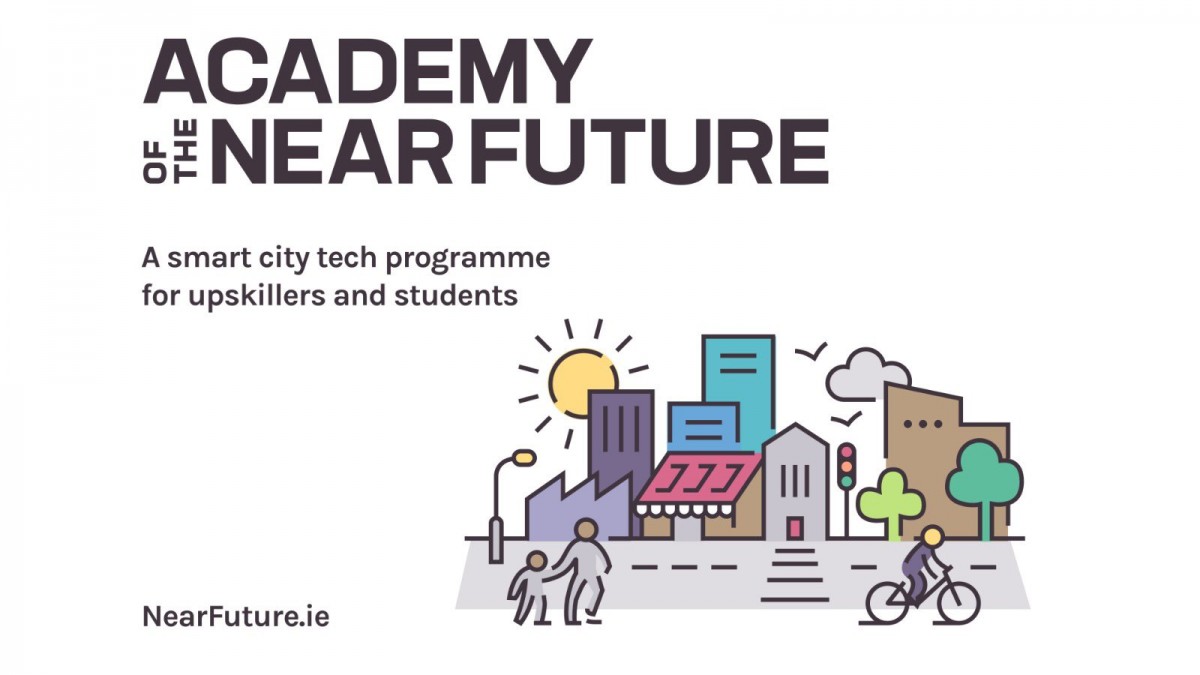About Smart Docklands
Community Engagement
Academy of the Near Future
What is the Smart Docklands Initiative?
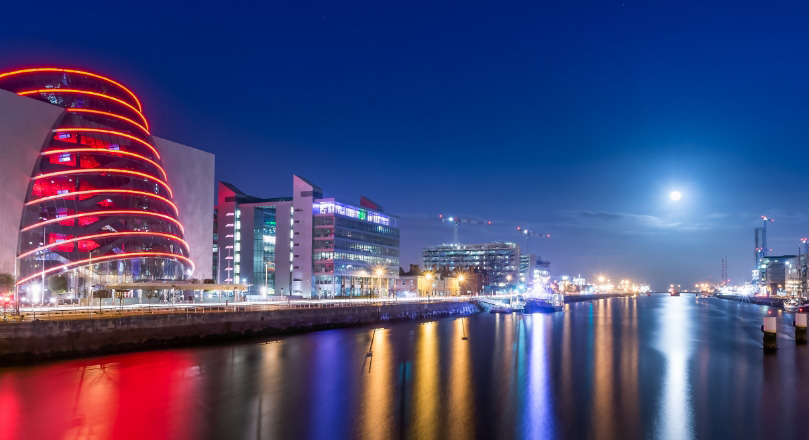
Smart Docklands successfully facilitates and enables the testing and trialing of smart city solutions by identifying real local challenges. Working with diverse stakeholders to come up with lasting solutions, this work has developed innovations in areas such as telecommunication infrastructure, environmental monitoring, waste management, smart mobility, citizen engagement and real-time asset management.
Smart Docklands is also a key part of Smart Dublin’s district approach. Smart Districts are strategically selected locations where innovation projects are fast-tracked. Smart Docklands was the first district of this nature with additional districts scaling across the county.
Each Smart District delivers a bespoke portfolio of projects designed to meet the needs of the people who live and work there. Through outreach and engagement with local communities and businesses, our Smart District teams identify real-life challenges experienced in the area. Every Smart District is unique, with different thematic priorities based on the local context.
What are we trying to achieve?
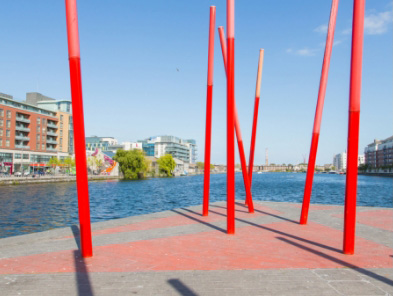
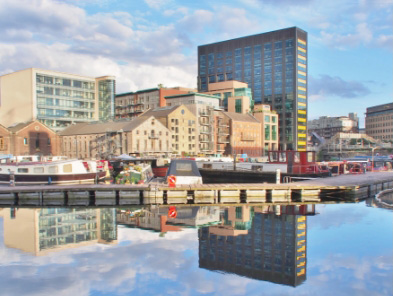
Smart Docklands strives to improve the lives of those who live and work in the Docklands with a particular emphasis focusing on future connectivity opportunities and education and engagement initiatives. Through collaborative effort, this ability to transform Dublin City can provide solutions and governance models that can be scaled globally.
During the 2021/2022 academic year, the Academy of the Near Future smart cities education programme successfully delivered once-off smart city workshops with over 1,000 students nationally. The following year’s programme expanded that workstream to include a three-part workshops series, initiating multiple citizen science projects in 14 partner secondary schools and 5 primary schools.
Our mantra is do not deploy “tech for tech’s sake”. Through our community engagement programme we work closely with a diverse range of stakeholder groups to identify challenges which can be addressed through new smart city technology and applications.
The world’s economy is at a pivotal point as we see a move towards an increasingly connected society driven by the Internet of Things (IoT), Artificial Intelligence and Big Data. The pace of adoption of these types of technologies will become the basis for long-term national economic growth. The impact of these emerging technologies will be underpinned by the robust connectivity that 5G offers. As a result, our 5G testbed highlighted the economic, technical and infrastructural considerations regarding infrastructural deployment and future network requirements.
In order to have the ability to test and pilot a diverse range of smart city solutions, it is essential to have a wider range of connectivity options. In The Docklands we have full coverage of three LPWAN’s (LoRa, NB-loT and Sigfox) which are widely used to test and scale loT based solutions. In addition, Dublin City Council are in the process of rolling out a dark fibre network which will give us the ability to trial innovative solutions for pervasive connectivity.
Our work on the future densification of telecommunication infrastructure has brought industry, academic experts, local authority representatives and other public assets owners together to catalogue and address issues related to the deployment of 5G across Irish cities and towns.
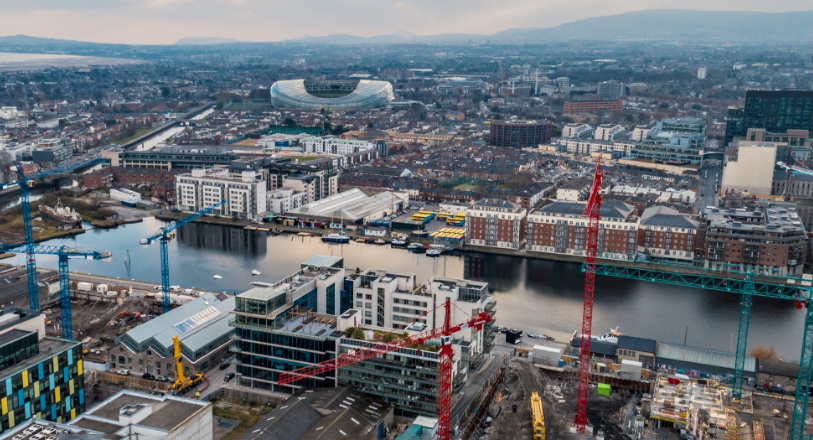
Smart Docklands Community Engagement
We need to understand the challenges that the Docklands Community face now and into the future to ensure we are addressing real city challenges and not just using tech for tech sake. To help us understand the key challenges faced in the Docklands area we run an engagement programme with local stakeholder groups in the Docklands that includes workshops, events and webinars.
Our programme involves a two pronged approach, firstly: We work with the local Docklands community to identify what are the challenges they experience to ensure we are aligning our work programme with real life challenges – not just using tech for tech sake; secondly, we Act as a facilitator between industry, government, academia and citizens to foster collaboration through funding, knowledge and resources to deliver projects.
We work on both long and short-term challenges as well as those focused specifically based in the Docklands and those with a global context. We work with a broad range of companies from large multinationals to local SMEs and the existing startup ecosystem based in the Docklands
What is the Community Engagement Mission?
That our engagement programme both raises awareness of smart city innovation across local communities and influences future research and development. We want to treat community engagement as an opportunity to build and develop existing relationships. We want to emphasise the importance of two-way communication and start with publishing information about this community engagement strategy including information about community engagement up to date.
Academy of the Near Future
Academy of the Near Future is a smart city education programme for students and local authority staff. What started initially as a pilot emanating from Smart Docklands has scaled to an expansive programme of engagement across multiple audiences. It exists to accelerate sustainable and inclusive smart city development through awareness, skills, and confidence-building.
Cities across the world are becoming smarter by using technology to make better decisions about how they plan, build and deliver services. Increased understanding of these technologies is needed at a city administration and community level so more citizens can engage confidently in shaping the future of cities and societies.
Academy of the Near Future programmes are a combination of interactive workshops, online learning and “hands on” activities with sensor kits that provide learners with an understanding of how technologies such as the Internet of Things and Big Data can help cities deal with traffic congestion, air pollution, extreme weather events, and more.
Committed to demystifying smart cities to groups who are underserved in STEM, 50% of workshops take place in DEIS schools with 50% female participation. In doing so, the Academy of the Near Future equips change makers to tackle 21st-century city challenges, and work towards a world where smart city technology improves the sustainability and liveability of cities across the world.
For more information about the programme and the latest news please see here.



